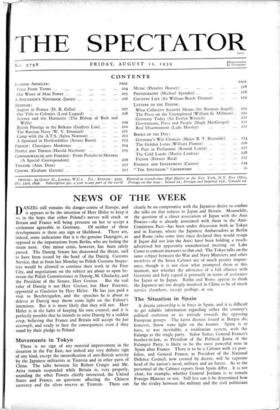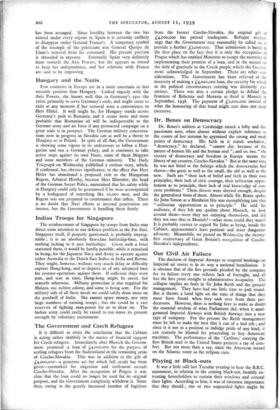The Situation in Spain
A drastic censorship is in force in Spain, and it is difficult to get reliable information regarding either the country's political evolution or its attitude towards the opposing European groups. The latest decrees issued at Burgos do, however, throw some light on the former. Spain is to have, as was inevitable, a totalitarian system, with the Falange as the single party. Senor Sufier, General Franco's brother-in-law, as President of the Political Junta of the Falangist Party, is likely to be the most powerful man in Spain after Franco There is to be a Cabinet with 12 port- folios, and General Franco, as President of the National Defence Council, now created by decree, will be supreme head of the nation's naval, military and air forces. As to the personnel of the Cabinet reports from Spain differ. It is not clear, for example, whether General Jordana is to remain Foreign Minister or not. Still less can it be determined how far the rivalry between the military and the civil politicians has been assuaged. Since hostility between the two has existed under every regime in Spain it is certainly unlikely to disappear under General Franco's. A temporary symbol of the triumph of the politicians was General Queipo de Llano's removal from his command. His present position is shrouded in mystery. Externally Spain very definitely leans towards the Axis Powers, but she appears to intend to keep her independence, and her relations with France are said to be improving.









































